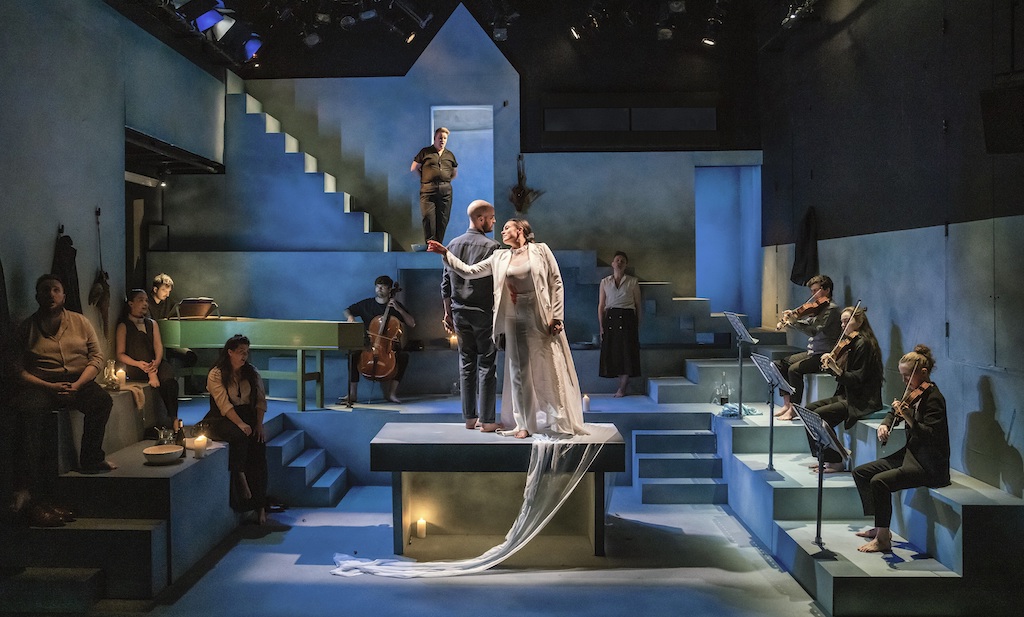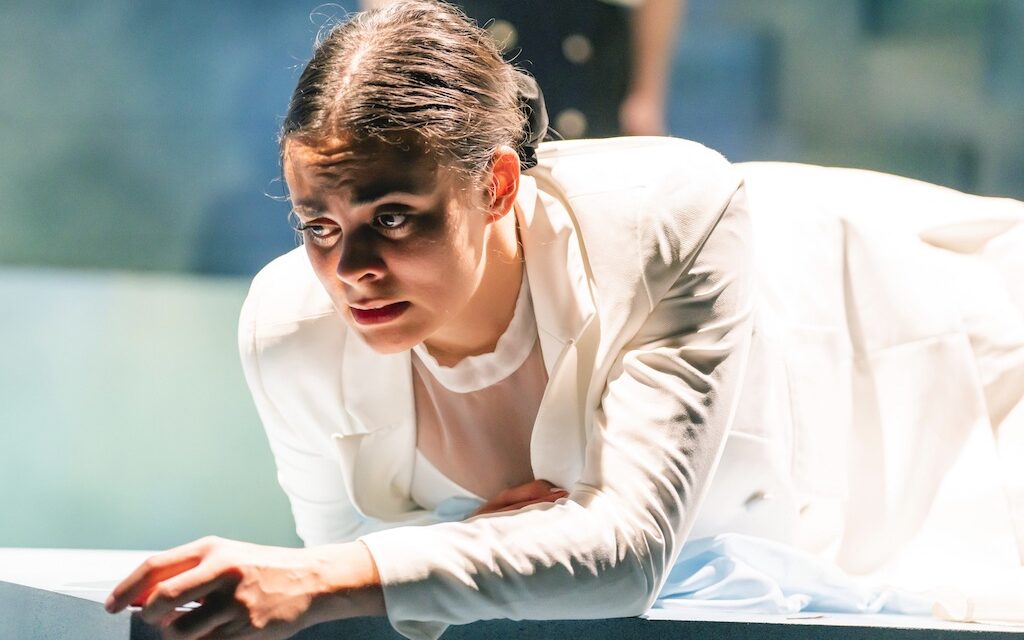
14 October – 5 November
Nahum Tate, who wrote the libretto, was a successful crowd pleaser as his reworking of King Lear giving it a happy ending and knocking Shakespeare’s original off the English stage for a century and a half testifies. Here we find no reworking of the episode from Virgil’s Aeneid in order to fashion sentimentality from tragedy, but nevertheless the tragic outcome is transformed into a moving poignancy by Purcell’s score.
In the Ustinov’s most pleasing of spaces I found myself wrapped in a kind of comfortable time warp with strands from the beginnings of English literature, which looked back to Greek and Roman antiquity, and one of the seeds of English opera with its relative simplicity and clarity of purpose.
Like, The Tempest, the story begins with a storm which blows Aeneas to the shores of Carthage. The opera tells of the love between Aeneas and Dido, Queen and founder of Carthage. It is a story of duty and the moral imperatives of love, of faithlessness and the inescapable path of god-determined destiny. We mess with the gods at ours and others’ peril would seem to be the message.
The director, Isabelle Kettle, shows a mastery of control, allowing the movement to flow around Hyemi Shin’s Escher-like set in the relatively constrained space of a studio theatre. Grey steps and platforms look down upon an altar that serves as the catafalque which opens and closes the opera. The atmosphere is suffused with the sense of powers beyond the control of the human actors. It is an effect which is heightened by the contrast between the slow-motion, almost dream-like movements of the singers and the at times lively on-stage playing of the quintet under the direction of Michael Papadopulous. Further contrasts are between the decisions of Dido and Aeneas (Dominic Bowe), between the performers and the musicians, the sexual simplicity of the two protagonists and the androgynous costuming of the chorus who were dressed in a non-binary fashion with skirts and trousers suggesting an inversion of traditional gender stereotypes. But whereas Dido subordinates her duty to the state to her love of Aeneas – who had previously sworn to do the same – he decides that obedience to the will of the gods trumps all; after all he has a city to found.
Madison Nonoa as Dido, delivers a performance of lambent sensitivity in what we might call an extended musical essay on the tragic poignancy of love thwarted by duty.
Of course the piece has interest from being one of the well-springs of English opera, but here shows it can hold its own as a jewel box of creativity and sentimental control.
The Ustinov under the artistic direction of Deborah Warner continues its transformation from the Rolls Royce of studio theatre to Bentley – i.e. still top of the range.
★★★★★ Graham Wyles, 20th October 2022
Photo credit: Tristram Kent


